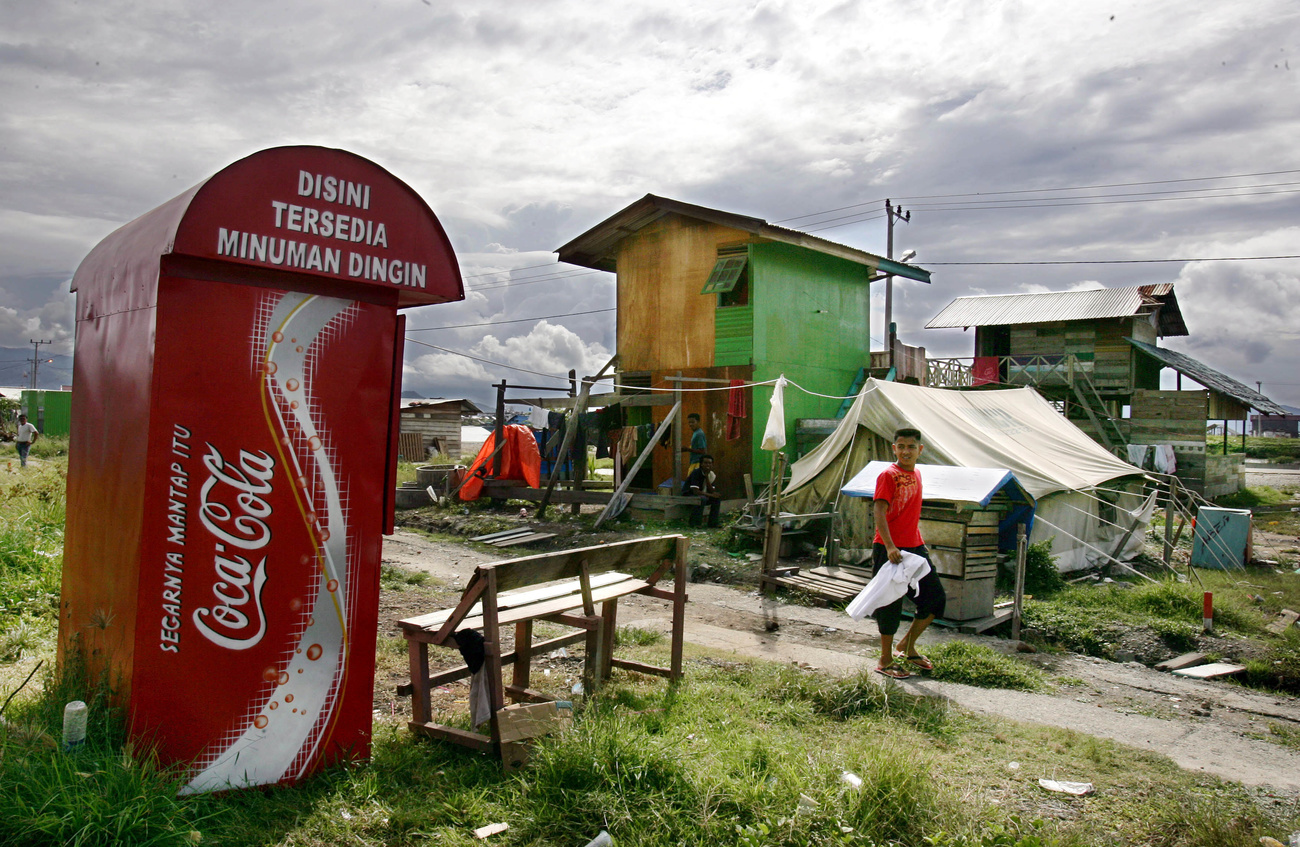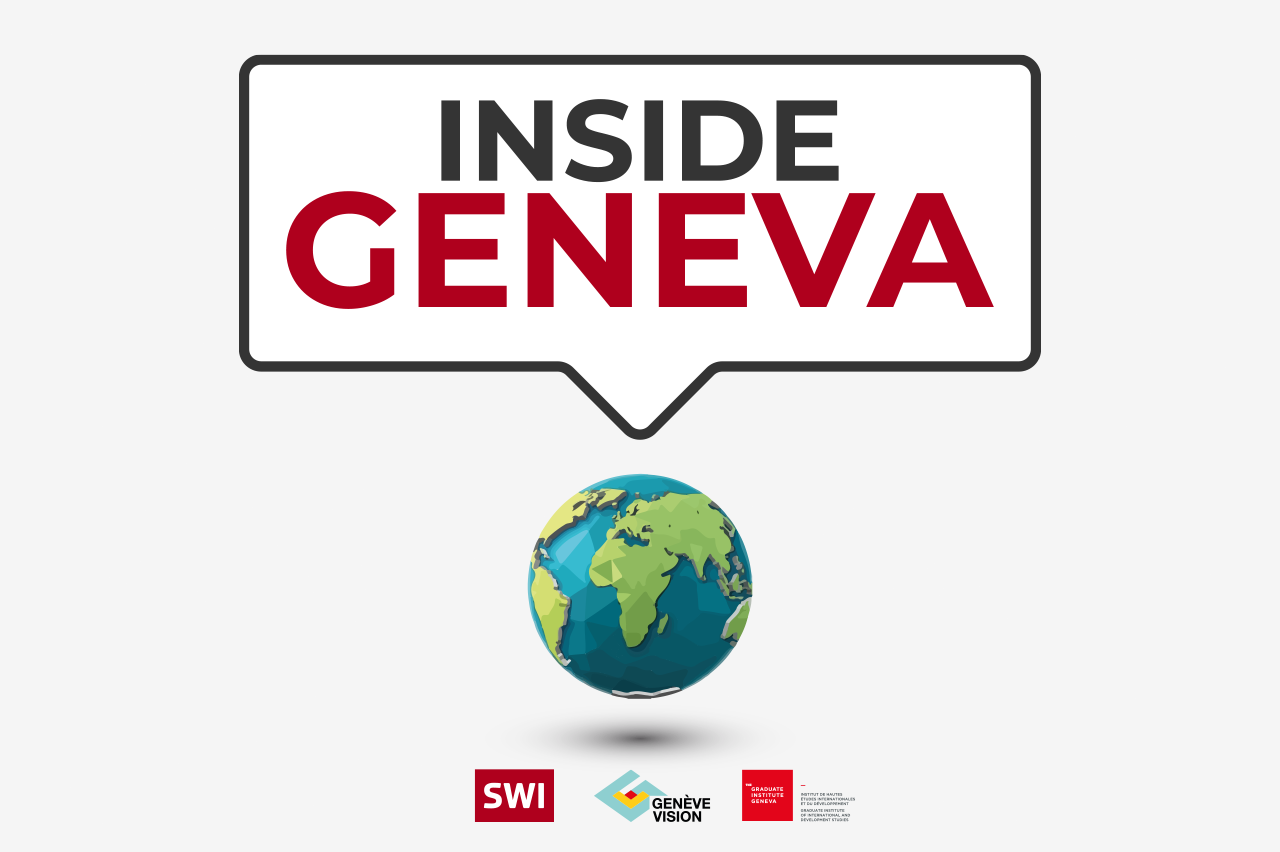Humanitarians soul-search over ‘institutional racism’
Some of the world’s biggest and most respected aid agencies are taking a long, hard look at their structures and employment culture, amid accusations that they are guilty of institutional racism.
Earlier this summer, over 1,000 current and former members of the Geneva-based medical charity Médecins sans Frontières (MSF) wrote a searing open letter, suggesting the organisation was run by a “privileged white minority” and that it had “failed people of colour, both staff and patients”.
That’s a pretty damning criticism of an aid agency which brings medical relief to millions around the world, which has stayed put in conflict zones such as Afghanistan and Iraq when others have left, which has worked tirelessly to end the Ebola outbreak, and which has won the Nobel Peace Prize.
And yet, the charges are not without foundation. MSF’s staff are currently more than 90% “national”, meaning hired in the country in which they are working. But the strategies, the decision making – in short, the power – lies in MSF’s five operational centres, all based in western Europe, where many of the staff, and nearly all the senior positions, are filled by Europeans.
Over at the International Committee of the Red Cross (ICRC), an equally prestigious aid agency, there are similarities. The fastest-growing group among the ICRC’s new recruits is from Africa, but, the organisation’s adviser on diversity and inclusion Annike Norlin admits, very few African staff have advanced up through the ranks.
Colonial influence
Historically of course Europe has been the bringer of things (not all of them good) to Africa, rather than the other way around. Not only colonial armies, but missionaries, teachers, doctors and assorted do-gooders headed to Africa throughout the 19th and 20th centuries.
They were not shy of calling attention to the “good” they were doing. My parents remember donating a penny of their pocket money each week “to the black babies”.
Fast-forward to the 1980s and I can remember the surge of virtue we all felt buying Band Aid’s “Do They Know It’s Christmas?” hit single. The proceeds were intended to alleviate the famine in Ethiopia. Back then, I don’t think it occurred to me or my young friends that the lyrics – “there won’t be snow in Africa this Christmas time” or “do they know it’s Christmas time at all” – were incredibly culturally insensitive.
Those doubts probably never occurred to the multiple rock stars (Sting, Boy George, Bono, Phil Collins and so many more) performing on that single either. Neither did many of us reflect on how all that money raised might be spent, who was consulted about how it was spent, and whether it really helped. It just felt good to do good.
But times have, thankfully, changed. We, or at least many of us, are more conscious about how we talk, and how we work. Racism and sexism, whether open and abusive or subtly incorporated into the system, are being challenged. Some of the language and behaviour I had to put up with as a young woman from my more senior male colleagues have become sackable offences.
Structural change
The problem for humanitarian aid agencies, particularly the ones like MSF or the ICRC which were founded in Europe, is that the colonial era “Europe gives, Africa receives” mentality is now deeply rooted in their institutional structures.
“We are an incredibly diverse organisation and it has improved our action; it has become a lot closer to the beneficiaries,” says Liesbeth Aelbrecht, director general of MSF Switzerland (and incidentally the first woman to hold the post). “But our structure hasn’t changed – the majority of the decision making is still in Europe.”
MSF management say they welcome the open letter and that structural change is happening. A sixth operational centre is being planned, and it will be not in Europe but in west Africa.
But the reaction from aid workers, not just those in MSF, to that open letter has been more mixed. Many have thanked the signatories for finally airing an uncomfortable topic. Others, from ethnic minorities, or citizens of countries receiving aid, have come forward with painful experiences of having their ideas and suggestions ignored. Their knowledge of their own communities, some claim, is worth less than the view of a European parachuted in on a six-week crisis intervention.
Two-tier system
A long-standing complaint is the way in which international staff (Europeans, Canadians, Australians) often have better employment conditions, better pay, better job protection, than national staff. Alan Mwendwa, of the ICRC, who has recently arrived in Geneva from Nairobi, explains it like this.
“In the ICRC, when it comes to aid operations, most of us put aside our personal beliefs or internal conflicts and we just get down and do it. When it comes to the work, we are all in it together. It’s in the moments in between, when the work is finished – say the international staff want to go out and have drinks, and you’re thinking ‘I don’t have that kind of money’. Little things like that. We don’t speak the same language. Not just verbally; we don’t live the same lives.”
Mwendwa also agrees that, when it comes to incorporating ideas and advice, local staff can be at a disadvantage.
“Say we go out to the field and the ICRC in Geneva has decided that these communities need water, and I go and speak to [the communities] and they say ‘we don’t need water, we need shoes’, and I go back and tell my manager that. I think the most obvious thing that would happen would be friction.”
Nevertheless, Mwendwa believes that things are changing and his own recent promotion to a position in Geneva is a sign of that.
“I’m living proof that there are changes happening. It’s not easy, it’s more difficult for me as an African to get into a position of leadership, of management … but it is happening. Maybe not as fast as I would want, but it is happening.”
The tree has been shaken
Still, to achieve real change, to open up those rigid structures, the leading European minds in the humanitarian community will have to open up too. But the debate has at least started, and, kudos to the aid community, that debate is happening out in the open.
The ICRC is investing more in career development for locally hired staff, it has created an education fund to which all staff have access, and it has set a formal objective of increasing the diversity of its management team.
Over at MSF, change is afoot too, and Liesbeth Aelbrecht has confidence that a new, more diverse, more inclusive humanitarian sector is on the way.
“The tree had to be shaken, and I am positive this will be good for us. Yes, we have listened, we need to step up, and we need to take strong action. There is no other way.”
The views expressed in this article are solely those of the author, and do not necessarily reflect the views of swissinfo.ch.

More
The risky business of foreign aid

In compliance with the JTI standards
More: SWI swissinfo.ch certified by the Journalism Trust Initiative










